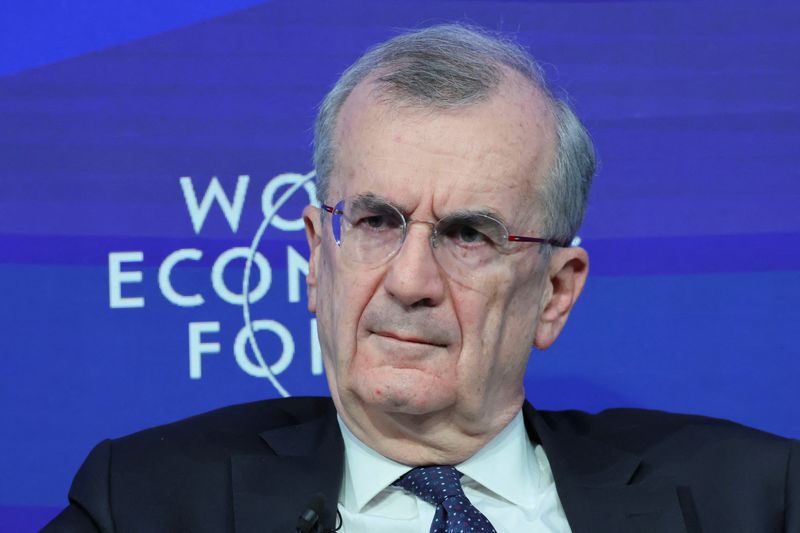FRANKFURT (Reuters) -Four European Central Bank policymakers backed further interest rate cuts on Friday provided that inflation settles at the ECB's 2% goal as expected.
The euro zone's central bank cut interest rates for the fourth time this year on Thursday and kept the door open to more easing, although some analysts felt President Christine Lagarde's signal in that direction was less clear than they had hoped for.
French central bank governor Francois Villeroy de Galhau, his Spanish colleague Jose Luis Escriva, Austria's Robert Holzmann and Luxembourg's Gaston Reinesch appeared to sharpen the message on Friday.
"There will be further rate cuts next year," Villeroy told France's BFM business radio.
Speaking on Spanish TV, Escriva added it was "logical" that the ECB would "lower interest rates again at future meetings" if inflation continued to converge to target. It was 2.3% in November.
The ECB lowered the rate it pays on banks' reserves by 25 basis points to 3.0% on Thursday and investors expect at least another 100 basis points worth of cuts by June.
Lagarde refused to speculate about the future path for rates, flagging risks ranging from possible U.S. tariffs to political uncertainty at home, where France is currently without a government and Germany faces new elections, as well as stubbornly high domestic inflation.
Villeroy, a centrist who has become increasingly supportive of easier policy in recent months, threw his weight behind market pricing.
"I note that we are collectively rather comfortable with the financial markets' interest rate forecasts for next year," he said.
Even Austria's central bank governor Robert Holzmann, a hawk who was once the lone dissenter against easing, backed the return of rates to a neutral level, which neither stimulates nor curbs the economy, of around 2%.
"Interest rates will go in that direction," he told reporters. "If the market assessments as they are at the moment come true, then they will match our forecasts. And if our forecasts match, then we will probably have to adjust our interest rates to be consistent."
Luxembourg's Reinesch, who rarely discusses policy in public, told local media RTL that it would "not be unreasonable" for the deposit rate to "decrease to 2.5% by early spring", likely implying back-to-back 25 bp cuts in January and March.

Escriva played down the prospect of a larger 50 bp rate cut, an option has been raised by some of his colleagues and adopted by central banks in Switzerland and the United States.
"In the discussions we had yesterday, the idea that prevailed is that we should keep having moves of 25 basis points downwards, which is the form that will allow us to keep evaluating the effects in terms of disinflation," the recently appointed Spanish governor said.